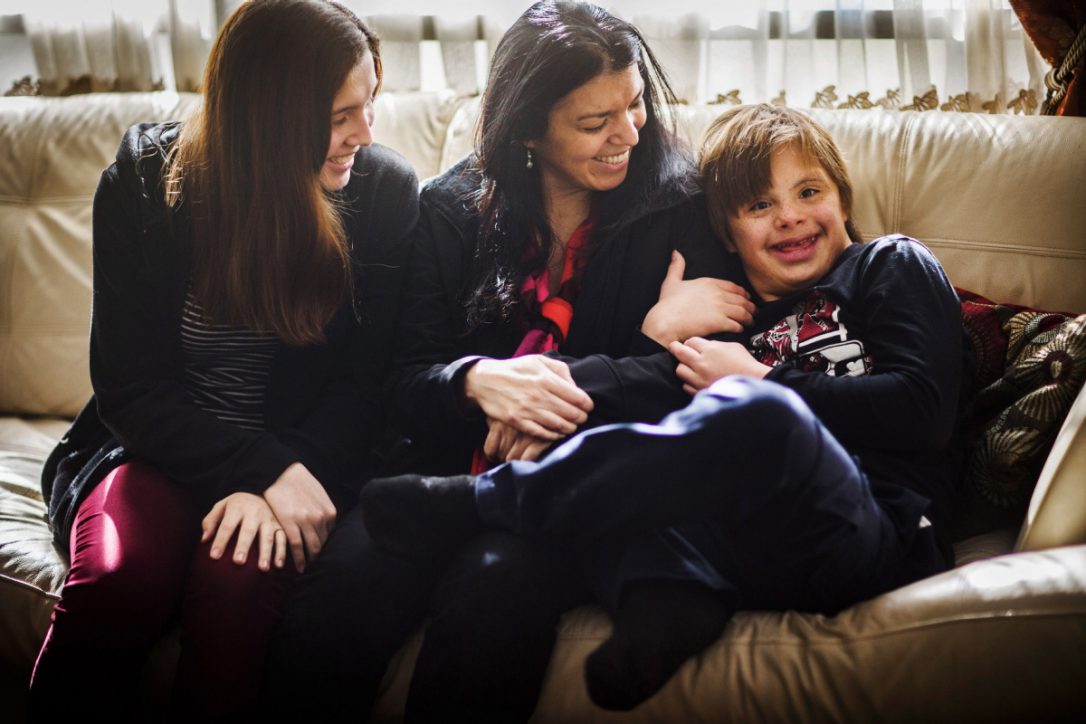Costa Rica News – Nicolas Garcia Montoya, the 13 year-old Costa Rican boy and his family denied permanent residency in Canada because he has Down Syndrome, can now live in Canada after that country’s immigration service elminated the inadmissibility declaration.
Felipe Montoya, who had been working at York University as a tenured professor of environmental studies when he and his family submitted their application to Citizenship and Immigration Canada (CIC), confirmed Canada has overturned its decision through “ministerial intervention” on compassionate grounds.
The news came in August. However, the family had already moved back to Costa Rica a month earlier.
In August, Montoya told the Toronto Star, in a telephone interview from Costa Rica, “We are still committed to taking advantage of our situation and our case to be able to contribute to the wider disability community in Canada, and not because it’s our idea but because the charter says so. It seems like it’s our duty to make the laws congruent with the charter.”
According to The Star report, Montoya received a letter on Aug. 5 indicating that he and his family were being granted “relief from inadmissibility” under section 25-1-1 of the Immigration and Refugee Protection Act, which states that a foreign national permanent resident may be granted status if “the minister is of the opinion that it is justified by humanitarian and compassionate considerations.”
Montoya said he was of two minds about the exemption, but ultimately accepted it and expressed gratitude. However, he said he does not believe this is the way to resolve similar cases in the future. “I think the disability community doesn’t deserve compassionate and humanitarian considerations, but rather justice and means of inclusion into society,” he said, reported The Star.
In a report by Patricia Recio of La Nacion on Monday, Montoya noted that, as per the notification, he travelled to Canada to sign the (residency) papers and said “we were a little dissatisfied with the offer, because what we have been fighting for is a change in the law so that no one has to suffer such discrimination, what they offered us with the exception does not solve the underlying problem. But the group working with us suggested I accept, because that is an achievement and from there we can continue the fight for a change in policy.”
Montoya, who is currently a professor of Anthropology at the University of Costa Rica (UCR) and his wife Alejandra their two children have settled back in Costa Rica; Nico and his sister Tania are studying at the Liceo de Cuidad Colon.
“Right now we are here in Costa Rica because the future (in Canada) was uncertain, within the next five years we must see if we can reside in Canada,” Montoya told La Nacion. A permanent resident must live in Canada for two years out of every five, or risk losing that status.
The story of the Montoya family uncertain future in Canada started at the beginning of the year. In March the case of the made headlines internationally.
See our report here: Unwelcome In Canada. Montoya Family Back In Costa Rica After Canada Refused Residency Because Their 13 Year Old Nico Has Down Syndrome
Canadian officials said it would place an excessive burden on the Canadian health-care system. A letter fromn the CIC sent to Montoya said:
“I have determined that your family member Nicolas Montoya is a person whose health condition might reasonably be expected to cause excessive demand on social services in Canada. An excessive demand is a demand for which the anticipated costs exceed the average Canadian per capita health and social services costs, which is currently set at $6,387.”
The CIC letter references reports that Nicolas functions at the level of a 3-year-old. It goes on to estimate that special education supports for Nicolas would cost between $20,000 and $25,000 a year.
After the case became known publicly, a Canadian woman began a campaign to collect signatures in order to request that the Immigration and Refugee law be reviewed. This initiative gathered more than 1,000 signatures and was sent to the Government.
From QCostaRica
Source: La Nacion, Toronto Star, National Post, Canadian Press

